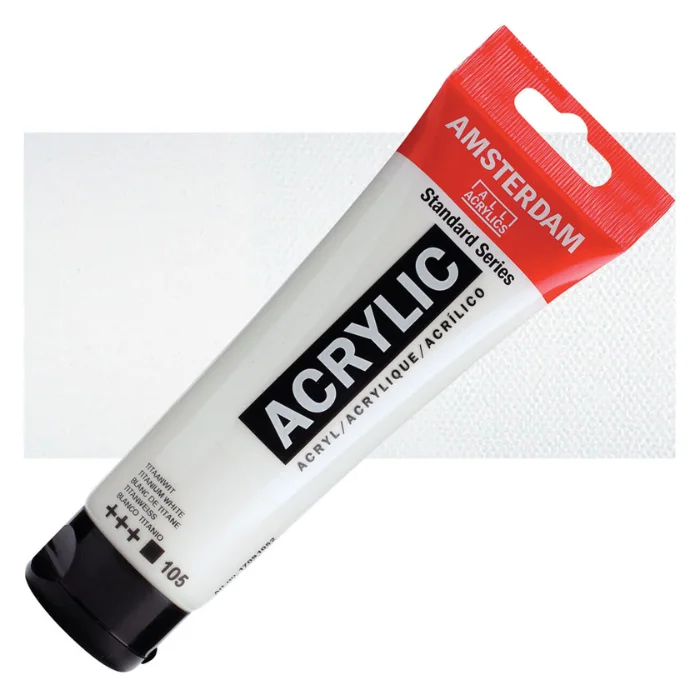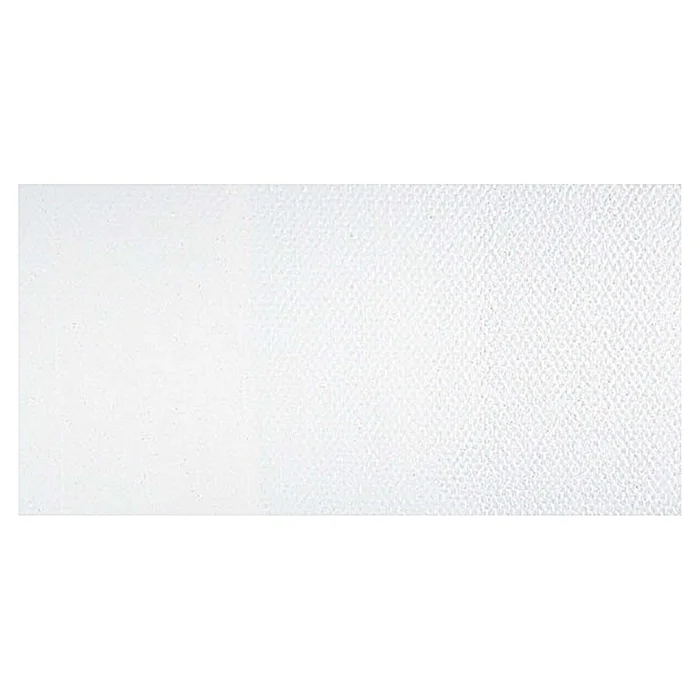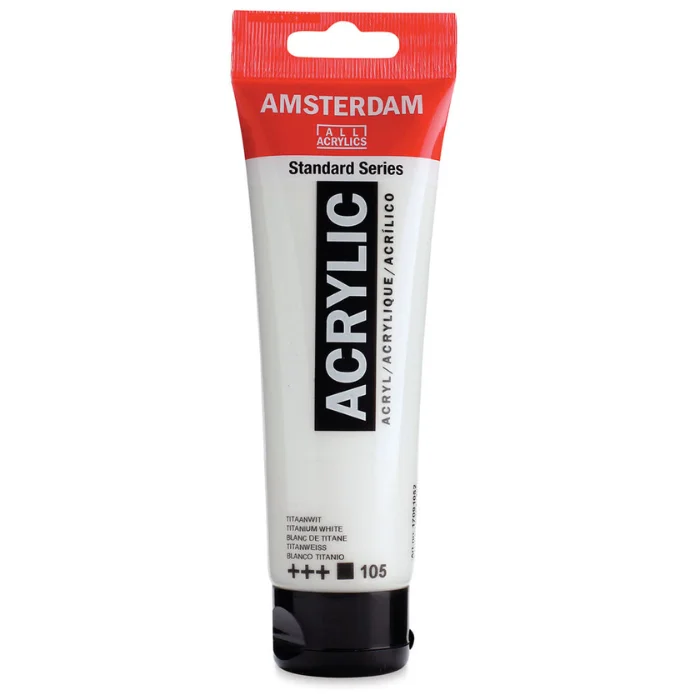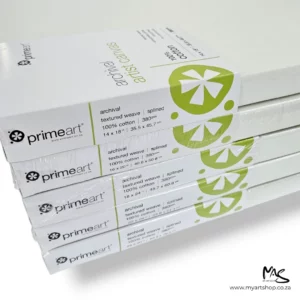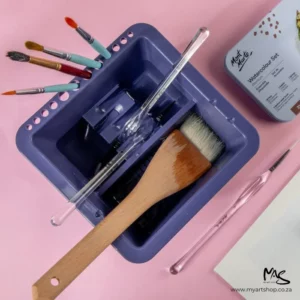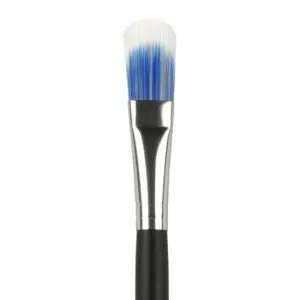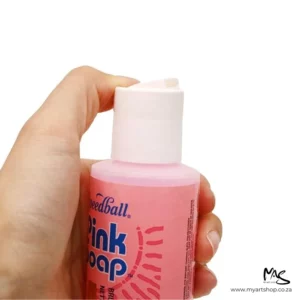Titanium White Amsterdam Acrylic Paint 120ml Features:
The Titanium White Amsterdam Standard Series Acrylic Paint is an exceptional choice for both professional and hobbyist artists looking for a reliable, high-performance acrylic paint. Designed to offer a high degree of lightfastness, the paint ensures that colours remain vivid and resistant to fading over time. Amsterdam uses pure, stable pigments, which are crucial for achieving accurate and consistent colours.
The paint is formulated with a 100% acrylic resin binder, ensuring a strong and flexible paint film. This formulation contributes to the durability of the paint, making it ideal for a variety of applications. Including large-scale murals. It can adhere to a broad range of slightly porous surfaces, such as canvas, paper, cardboard, wood, stone, and cement. Whether you’re creating art on a traditional canvas or experimenting with more unconventional materials. The Amsterdam Standard Series Acrylic Paint provides excellent adhesion and a smooth, even finish.
One of the standout features of this acrylic paint is its versatility. The medium viscosity allows for visible brush strokes, texture, and smooth coverage with a satin finish. Artists can use it directly from the tube for a rich, full-bodied colour, or thin it with water or acrylic mediums to achieve different effects and consistencies. This flexibility makes it suitable for a wide range of techniques, whether you’re applying thin layers, building up texture, or blending colours.
The Amsterdam Standard Series Acrylic Paint also boasts a short drying time, with thin layers typically drying within 30 minutes. Therefore allowing for faster layering and adjustments. Once dry, the paint becomes waterproof and permanent.
Available in 102 colours, the Amsterdam Standard Series Acrylic Paint includes both traditional and contemporary shades, such as metallics and reflex colours. The paint’s satin finish provides a balanced sheen. Additionally, the paint’s water-based, odorless formula ensures a comfortable and safe working environment.
Colour Name: Titanium White
Colour Number: 105
Opacity: Opaque
Lightfastness: +++
Pigments Used: PW8







